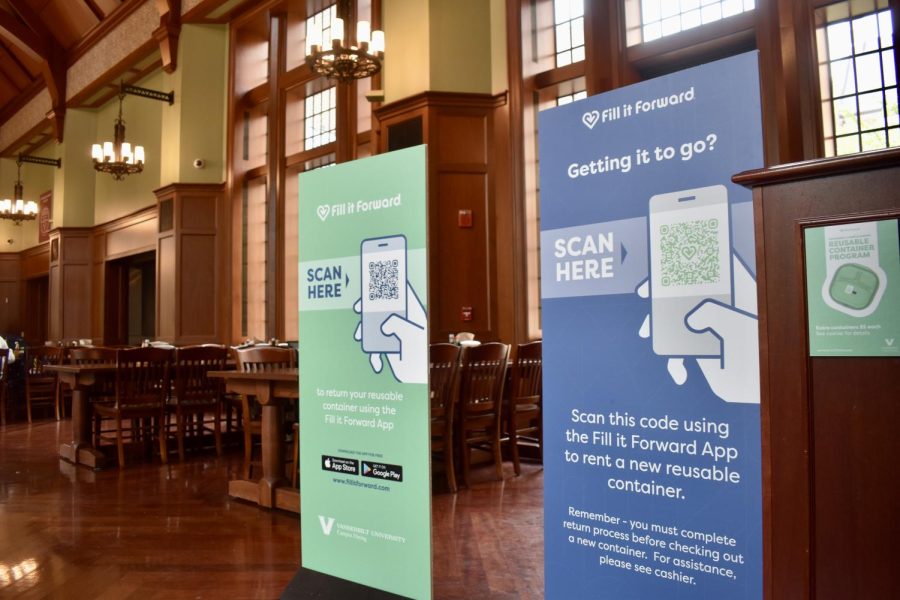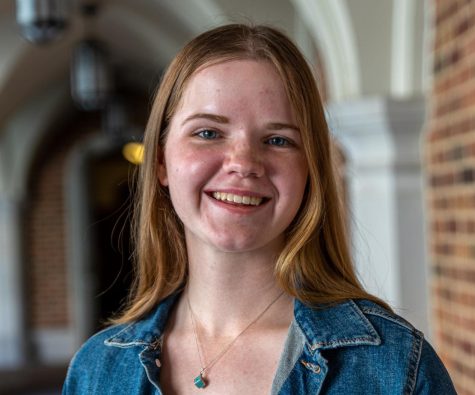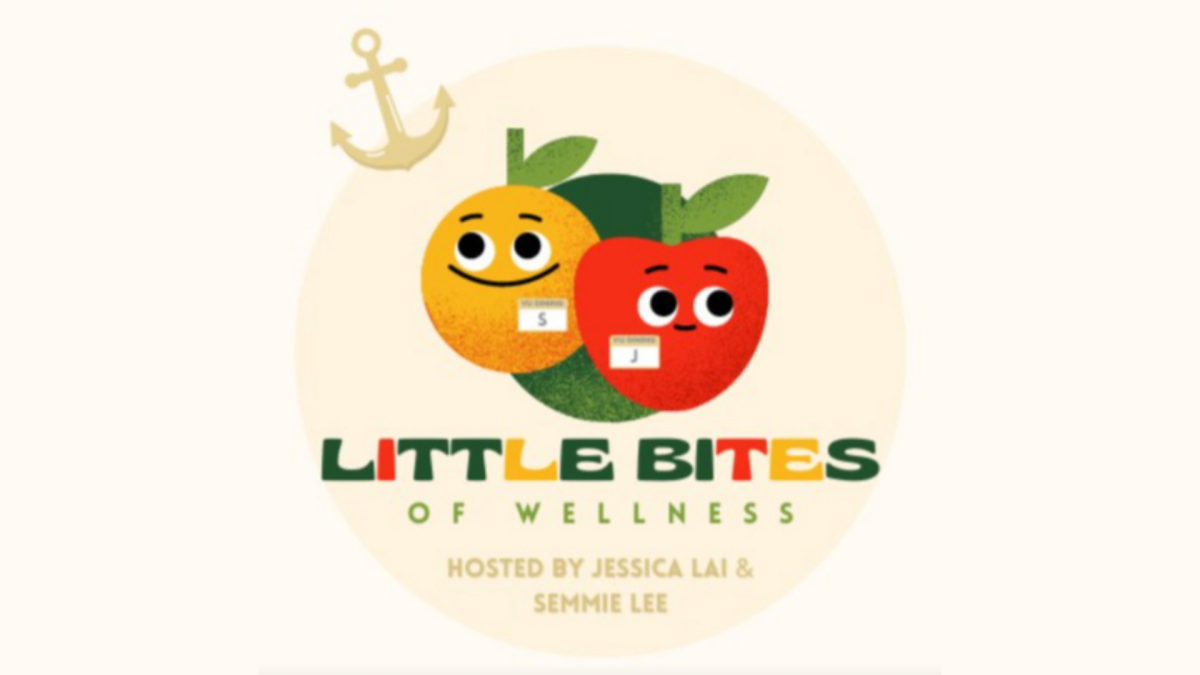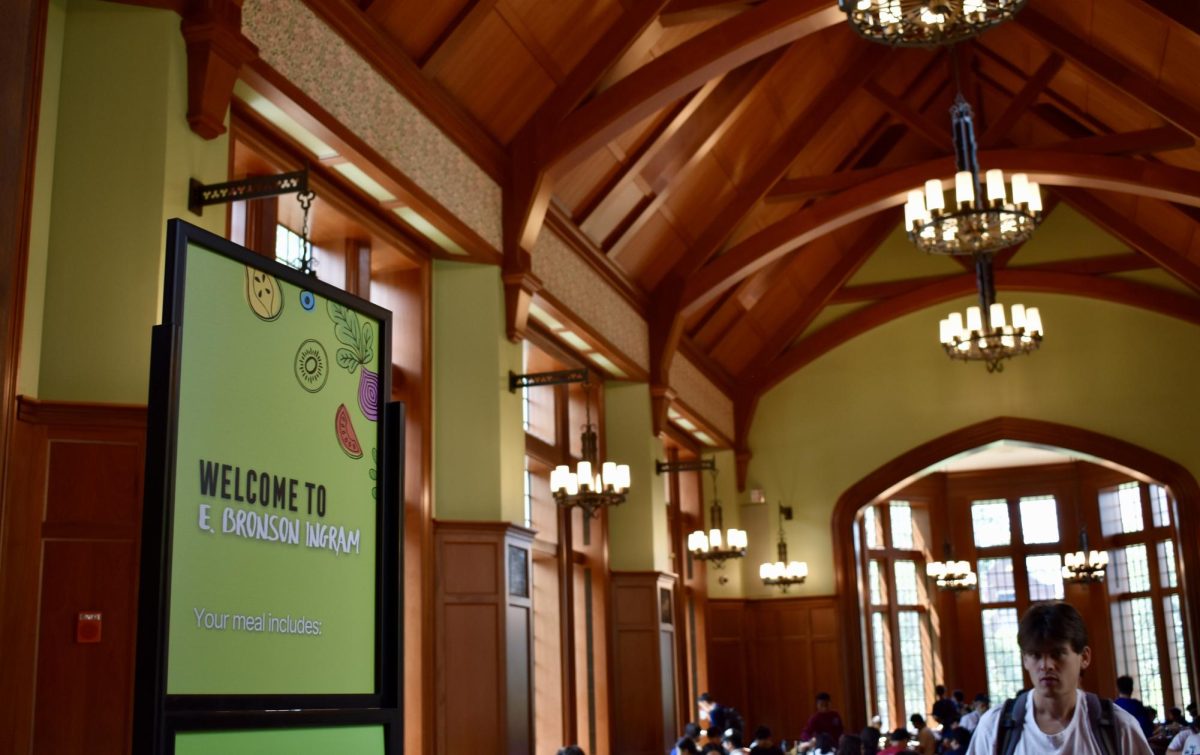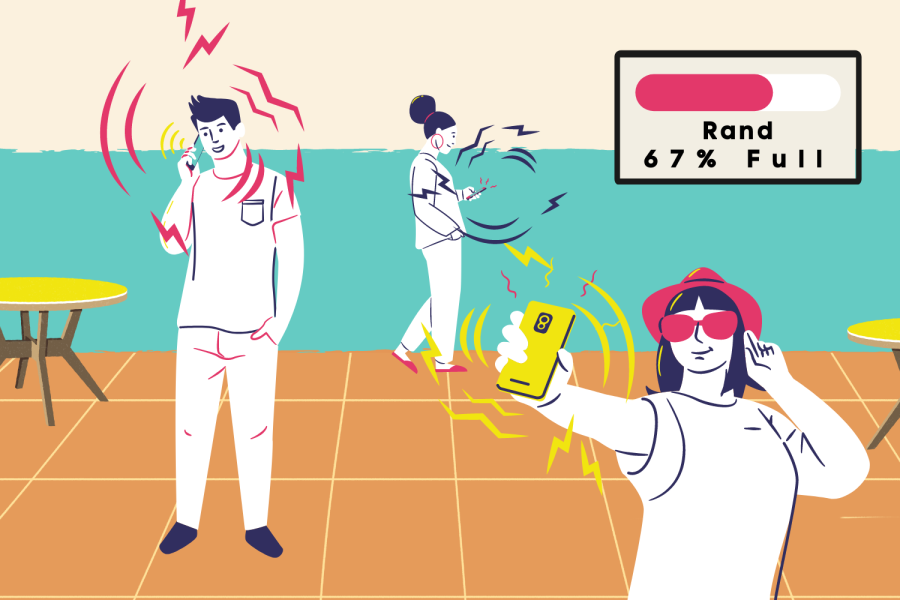Fill it Forward, a collaborative initiative between Vanderbilt Student Government (VSG) and Vanderbilt Campus Dining, was announced and went into effect on Aug. 9 and allows students to take food from eligible dining halls in reusable to-go containers. These containers are available at Commons, E. Bronson Ingram, Rothschild and Zeppos Dining Halls.
To use Fill it Forward at Vanderbilt, students first register for the program using the free Fill It Forward app. Students scan a QR code at the entrance of the dining hall and show the rental receipt to the dining hall cashier to receive their reusable container. Students then use a meal swipe to take the container into the dining hall and fill it with food.
When students want to return their container, they must return to any dining hall on the program, scan both the QR code on the “return poster” and the QR code on the container they are returning and drop the container in a designated bin. Students will be charged $5 for each container that they check out before returning all other containers they’ve checked out.
The move came after Campus Dining received feedback from students who said they wanted Campus Dining to be more sustainable. In addition to tracking rentals, the app measures the social and environmental impact of what the user reuses. In Campus Dining’s Aug. 9 press release, Senior Director of Campus Dining Maria Portelli said she sees the new initiative as progress in meeting students’ feedback.
“Launching the Fill it Forward program is a big step forward in our drive to offer sustainable dining at Vanderbilt,” Portelli said. “Based on surveys and feedback, our students have long advocated for environmentally friendly packaging, and we know that Vanderbilt Student Government has expressed particular interest in a reusable to-go system. We’re proud to reduce our environmental footprint and look forward to more initiatives like this in the coming years.”
Campus Dining told The Hustler that, as of Sept. 7, over 1,300 students are registered for the program, amounting to 3,000 total reuses so far. A University representative for Campus Dining said that they are confident that, with increased participation, the program can make a positive environmental impact.
“1,840.53 kwH of power have been saved, 3,132.13 lbs. of emissions have been saved, 96.87 lbs. of waste have been diverted and 19.37 lbs. of ocean pollution have been prevented,” the representative said. “These are modest numbers to start, but with increased participation from our entire student body, Vanderbilt could make a much larger impact.”
VSG President Amisha Mittal, a senior, said one of the goals of the program is to remove the need for single-use plastics in dining halls.
“It’s one replacement of the single use plastic containers that we used to have in years past, especially when COVID-19 created a lot of plastic waste. We’re trying to eliminate that with this program,” Mittal said.
Mittal highlighted sustainability as a major point of the platform she ran on in Spring 2022 with running mate and now-Student Body Vice President Ari Sasson, a junior. She said this goal was a reflection of students’ desires for campus development.
“[Students] could see boxes going to waste, as well as so much food waste in general,” Mittal said. “Now, we don’t even have single-use containers at all in dining halls, but students are still able to take food to their dorms.”
Mittal also said many students had complaints about Campus Dining in general in recent years. She hopes this initiative starts to improve the attitude of the student body toward Campus Dining.
“The past few years have been really rough with COVID-19, and everyone kind of did not enjoy Campus Dining,” Mittal said. “Going into the summer, I wanted to bring positive energy to Campus Dining.”
The Fill it Forward program is the latest of sustainability programs Campus Dining has implemented in the past few years. In 2019, Vanderbilt began the FutureVU sustainability initiative with the goal of reaching carbon neutrality by 2050. Campus Dining in particular joined the Menus of Change University Research Collaborative in 2019 to aid in sustainability efforts by working with other universities and professionals from across the country. They are also participating in the Zero Waste Master Plan, which has the goals of a 90% diversion rate of waste away from landfills and a 30% decrease in waste reduction from 2017 levels by 2030.
Senior Andrei Olaru, president of Students Promoting Environmental Awareness and Responsibility (SPEAR), said Vanderbilt is taking steps in the right direction with the reusable container initiative but still has more work to do in regards to sustainability.
“Vanderbilt has a really good record when it comes to sustainability,” Olaru said. “[However,] I think an area they can improve is that they should consider taking divestment more seriously. I think the principle neutrality that the chancellor talks about to avoid talking about it is pretty logically incoherent.”
The idea for reusable containers in dining halls on campus was originally proposed by SPEAR in 2018.
“The container system is great,” Olaru said. “We have a SPEAR person who meets with dining every month, and they have been more than easy to work with.”
Senior Steven Wu said he sees both benefits and drawbacks to this new system.
“[The to-go containers] are convenient when I have stuff I want to cook. I can take some ingredients and bring them back to my dorm to use them,” Wu said. “This whole process is definitely more tedious than the paper boxes we had last semester, and I feel like they don’t get cleaned well sometimes.”
Senior Clara Jiang also said she sees some challenges with the system.
“It’s discouraging me from taking out food,” Jiang said. “I don’t want to go through the process of taking out the [container] and returning it, so I just eat in the dining halls most of the time.”

